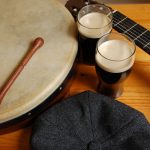Trouble getting to sleep? Study finds a weekend camping trip can help

In today’s world, many of us stay up late into the night, watching TV, using smartphones, computers or reading books by lamplight. Getting up when the alarm sounds in the morning can be a struggle.
Now, researchers from the University of Colorado have presented findings that suggest these sleeping woes could be as simple as spending more time outdoors in the sun. And a weekend camping can reset our body clocks to their more natural circadian rhythms, with positive impacts on health and mood.
Our increased use of electrical light coupled with reduced exposure to natural light, has caused modern humans to stray from our natural circadian rhythms or sleep patterns, and may be a contributor to poor quality sleep.
The team argues that time in the great outdoors could be beneficial for those of us who struggle to get up in the morning and boost health.
The researchers said swapping our houses for canvas was not a long-term solution but exposing ourselves to more bright light in the day (and less at night) could help.
Our body has a daily “circadian” rhythm that anticipates day and night to co-ordinate how our body functions.
It alters alertness, mood, physical strength, when we need to sleep and even the risk of a heart attack as part of a 24-hour cycle.
The study, conducted in the Rocky Mountains, Colorado, ran for two weeks with eight participants (six men, two women) who had a mean age of 30.3 years.
During week one, participants were encouraged to perform their daily routines of work, school, social activities and self-selected sleep schedules.
For the second week, participants camped in tents outdoors with only natural light and campfire, with torches or personal electronic devices banned.
The participants’ internal circadian timing was recorded and compared for both weeks of the experiment.
The findings, published in Current Biology, revealed that after a week of exposure to only natural light, our internal circadian clocks align with solar time. In other words, our internal biological night begins at sunset, and ends when we wake just after sunrise.
“Late circadian and sleep timing in modern society are associated with negative performance and health outcomes such as morning sleepiness and accidents, reduced work productivity and school performance, substance abuse, mood disorders, diabetes, and obesity,” says Kenneth Wright at the University of Colorado Boulder. “Our findings demonstrate that living in our modern environments contributes to late circadian timing regardless of season and that a weekend camping trip can reset our clock rapidly.”
While the weather at the moment isn’t entirely conducive to a fun camping experience, this study certainly suggests it would be prudent to bear in mind for summer.

